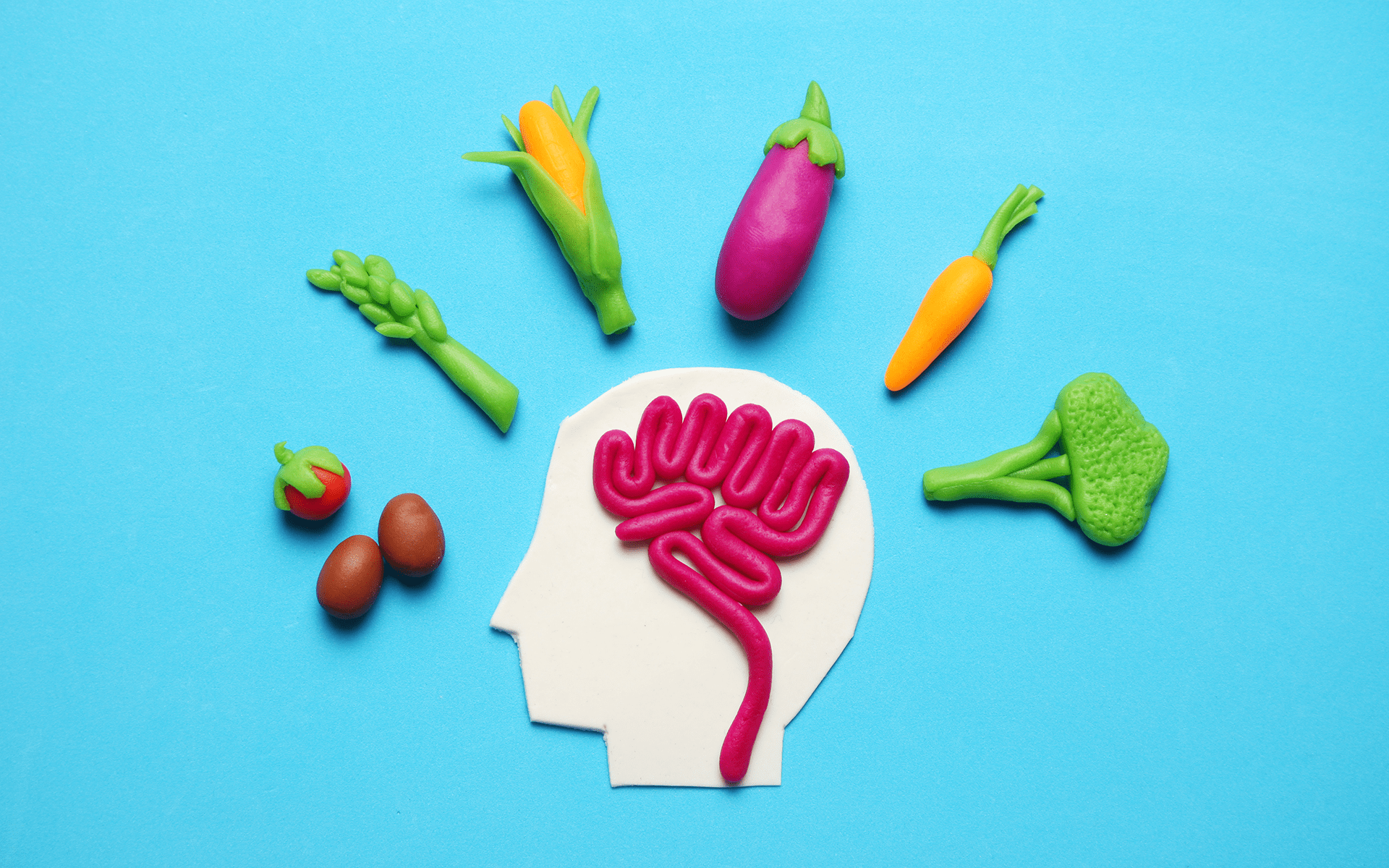How you feel is not just in your head, it’s also in your gut, your immune system, your nervous system, and your heart. In short, your mental state has more to do with your biology than you think. This is why trying to change your mind with your mind doesn’t always work.
In part two of this series, we explored the importance of cross-training to build mental fitness by combining daily exercise with additional mental fitness activities that cultivate calm and build awareness and clarity like mindfulness and breath practices. We also briefly introduced the idea of learning how the gut and brain communicate, which is what we’ll explore more deeply in this article.
The Gut-Brain Axis
The gut-brain axis is the “phone line” between your gut and your brain. It’s how they talk. This network can be separated into three channels: the nervous system, immune system, and endocrine system. Research on the gut-brain axis is emerging as part of the newest discoveries in science and suggests that improving the gut-brain axis can lead to improved energy, mood, mental focus, and stress resilience.
Most of our neurotransmitters are made in the gut microbiome, and most of our immune systems reside there, as well. If we can be more aware of what’s going on in the gut and reduce inflammation, we can improve our mental fitness, and even begin to help manage the effects of stress and burnout.
In his latest book, Mental Fitness: Maximizing Mood, Motivation and Mental Wellness by Optimizing the Brain-Body-Biome, Shawn M. Talbott, PhD, writes, “a wealth of studies in mice show that changing the bacteria in the gut can change behavior related to introversion/extroversion, depression/anxiety, and obesity/leanness.” Part of why this occurs, according to Dr. Talbott, is because, “up to 95% of the body’s serotonin (the neurotransmitter of happiness) is made in the gut. Likewise, up to 70% of our dopamine (for motivation) along with the majority of our norepinephrine (for focus) and GABA (for relaxation) and many others.”
A well-nourished microbiome sends the right signals through an intertwined network of communication—primarily the immune system. We now know that roughly 80% of our immune system resides in our gut. Therefore, one of the best approaches to improving the gut and the signaling between the gut and the brain is to put out inflammatory fires by reducing overall inflammation.
3 Ways to Improve Your Gut Microbiome (and Your Mood)
Studies show that modulating or rebalancing the gut-brain axis and reducing inflammation can lead to improved mental fitness, meaning you may feel less stressed, be in a better mood more often, have sharper focus, greater energy, and higher resilience.
These simple practices can get you started:
1) Practice Mindfulness
Reversing widespread inflammation doesn’t happen overnight, but a good start is reducing the physical and psychological stressors that can be triggering the reaction. Mindfulness meditation is a noted help. New research shows that reducing stress through mindfulness may make your body more resilient to inflammation.
Try this guided body-based meditation practice to get started. This meditation is designed to help you use your body as a tool to shift into a state of calm and ease.
2) Try a Mindful Eating Practice
There’s no doubt food influences your brain directly and indirectly. How we eat has great importance, too. Mindful eating enables us to slowly and sensually savor the action of eating, creating an experience to delight in.
Jennifer R. Wolkin, PhD, author of Quick Calm: Easy Meditations to Short-Circuit Stress Using Mindfulness and Neuroscience, suggests turning your meal into a mindfulness practice by asking:
- Why am I eating now?
- What am I eating now?
- Will this choice serve my wellness?
- What else am I doing now?
3) Eat “Good Mood Food”
It’s not news that eating healthy food makes us feel physically energized. We know that a diverse, plant-heavy diet rich with fermented foods makes us feel more mentally clear and sharp. Good mood food includes whole foods, high fiber, probiotics and prebiotics, antioxidants, and omegas that promote the growth of “good” bacteria, which positively affects neurotransmitter production and ultimately impacts our mood. In the end, food is mood.
Talbott suggests the most effective solutions to improving mental well-being is to address inflammation, imbalances in the gut microbiome, and dysfunction in gut-brain communication. So the next time you feel mentally dull, distracted, or foggy, remember your mood is not all in your head—it’s also in your gut and your immune system.







